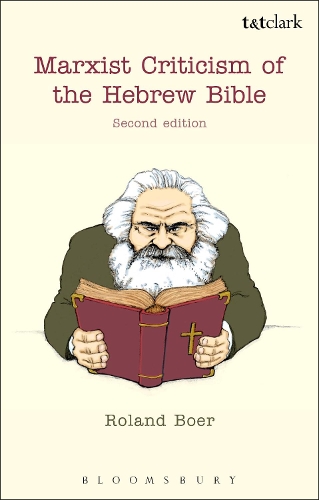
Marxist Criticism of the Hebrew Bible: Second Edition
(Paperback, 2nd edition)
Available Formats
Paperback, 2nd edition
Published: 18th December 2014
Hardback, 2nd edition
Published: 18th December 2014
Publishing Details
Marxist Criticism of the Hebrew Bible: Second Edition
By (Author) Roland Boer
Bloomsbury Publishing PLC
T.& T.Clark Ltd
18th December 2014
2nd edition
United Kingdom
Classifications
Tertiary Education
Non Fiction
Criticism and exegesis of sacred texts
Philosophy of religion
220.66
Physical Properties
Paperback
328
Width 138mm, Height 216mm
460g
Description
The only large-scale critical introduction to Western Marxism for biblical criticism. Roland Boer introduces the core concepts of major figures in the tradition, specifically Althusser, Gramsci, Deleuze and Guattari, Eagleton, Lefebvre, Lukcs, Adorno, Bloch, Negri, Jameson, and Jameson. Throughout, Boer shows how Marxist criticism is relevant to biblical criticism, in terms of approaches to the Bible and in the use of those approaches in the interpretation of specific texts. In this second edition, Boer has added chapters on Deleuze and Guattari, and Negri. Each chapter has been carefully revised to make the book more useful on courses, while maintaining challenges and insights for postgraduate students and scholars. Theoretical material has been updated and sharpened in light of subsequent research and a revised conclusion considers the economies of the ancient world in relation to biblical societies.
Reviews
Thoroughly rewriting his 2003 work with the biblical scholar and student in mind, Roland Boer presents a wide-range of Marxist critical theorists on biblical texts from Genesis to Daniel. The admirable result is a variety of provocative readings of dialectical richness. Boer offers an excellent entre into the depth and complexities of these philosophical thinkers, who tackled issues of economic exploitation and injustice head-on. His readings provide biblical scholars new ways of approaching texts that have been used in oppressive struggles throughout the course of history. * Gale A. Yee, Episcopal Divinity School, USA *
Roland Boer offers a fascinating close reading of biblical texts with the help of Marxist hermeneutics. He connects the texts with the socio-economic context in which they are written, with respect to what those texts themselves want to express. Different from the historical-critical interpretation of the Bible, in which history is the critique of the text, he shows how the tensions in the text itself make possible an immanent critique of its ideology: the never-ending attempt to oppress the protest. After this book it will be very difficult to read the Hebrew Bible as only a historical or religious document. * Dick Boer, University of Grningen, the Netherlands *
Author Bio
Roland Boer is Professor of Literature at Renmin University of China, Beijing, and a senior researcher at the University of Newcastle, Australia.
